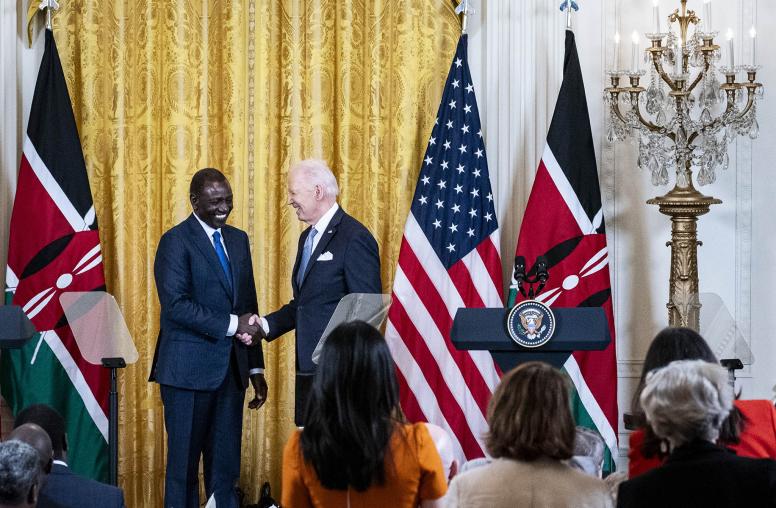Haiti Earthquake: One Year Later
One year after the January 12, 2010 earthquake, Haiti’s capital Port-au-Prince remains in ruins. It is imperative that the current crisis is resolved so that reconstruction can move forward.

One year after the January 12, 2010 earthquake, Haiti’s capital Port-au-Prince remains in ruins. Rubble has not been removed. Nearly 1 million people still live in makeshift shelters and temporary encampments. Unsanitary conditions, crime, exposure to harsh weather, joblessness and uncertainty remain the reality for most people.
Explore: USIP on Haiti One Year Later
USIP analysts reflect on Haiti's challenges and progress of the past year.
- USIP expert Robert Perito on Haiti one year later
- USIP expert Vivienne O'Connor on youth in Haiti
- Read a Peace Brief on Security After the Quake? Addressing Violence and Rape in Haiti"
- Register to attend the public event, or watch a live webcast of, "What is in Haiti's Future?" on January 26, 2011
Photo Gallery
View a photo gallery of images that tell a story of what has happened in Haiti since the earthquake.
USIP's work on Haiti
USIP's Haiti program works on many levels to support Haiti.
- USIP conducts training in conflict resolution and facilitated dialogue with community leaders in Haiti.
- USIP supported Ushahidi, Inc.'s efforts to provide crisis mapping during post-conflict relief and reconstruction.
- USIP is supporting Haiti's effort to reform its legal code utilizing USIP's Model Codes for Post-Conflict Justice.
- USIP publishes both brief and in-depth reports on Haiti.
- Take a comprehensive look at USIP's work on Haiti



